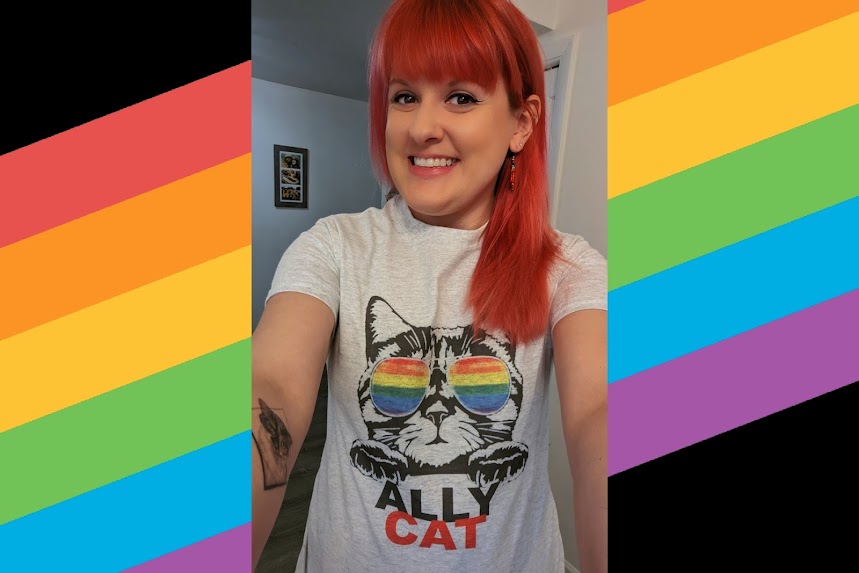
Attending a Catholic high school, none of my classmates publicly came out as part of the LGBTQ+ community until after graduation.
I saw, firsthand, how some of my peers would date members of the opposite sex before coming out – and, in turn, how depressed they were while hiding who they truly were or pretending to be someone they weren’t.
That’s why it boggles my mind that some people still believe in the myth that “homosexuality is a choice.”
According to the nonprofit Strong Family Alliance, “Scientific data indicates that sexual orientation is biologically based. Homosexuality is no more a choice or decision than being straight. Asking a gay person, ‘When did you decide to be gay?’ is similar to asking a heterosexual person, ‘When did you decide to be attracted to people of the opposite sex?’”
LGBTQ+ individuals are more than twice as likely to experience depression, anxiety, and substance misuse compared with heterosexual individuals. On top of that, the rate of suicide attempts are four times higher for gay, lesbian and bisexual youth and five times higher for transgender individuals than for their cis peers. Whenever anyone says they think being homosexual is a “choice” – I always bring up these statistics and say, “Does that sound like a choice to you?”
Why are members of the queer population more likely to struggle with a mental health condition? No, they don’t struggle with their mental health BECAUSE of their sexual orientation or gender identity. They struggle with their mental health because of the way OTHERS treat them because of their sexual orientation or gender identity.
According to the American Psychiatric Association, “Like other minority groups, questioning and queer people are often misunderstood, overlooked, and underrepresented in the health care system and societal institutions.”
“Though legal protections have been increasing dramatically, many places do not protect sexual or gender minorities in the workplace, housing, or access to health care. Fears of potential discrimination contribute to some LGBTQ people not seeking the help they need—medically or psychiatrically—in a timely manner, if at all.”
This is why it’s so important, if you’re part of the queer community and you’re struggling with your mental health or just need someone to talk to, that you seek help. By being LGBTQ+, there are a lot of things you have to deal with, such as overt and implicit discrimination, that your cis and heterosexual counterparts don’t. And I know – it’s not fair, and it shouldn’t be this way! But know that you don’t have to do this alone.
You can find a psychiatrist or counselor who is LGBTQ+ affirming by visiting Psychology Today, clicking on the “More” button, and then checking “LGBTQ+” under sexuality. And, even if you’re not LGBTQ+, this is a way to ensure that your psychiatrist or counselor is open and accepting – which, to me, are two of the most important characteristics of someone who I’m blabbering all my dirty laundry to.
The Trevor Project is also a great resource. The organization provides 24/7 crisis support services to LGBTQ+ young people. Trained counselors are available all year round via phone, text or chat. You can call 1-866-488-7386, text “START” to 678-678, or visit https://www.thetrevorproject.org/get-help.
I understand that trusting and opening up to others can be hard. Afterall, with about 39% of LGBTQ+ individuals saying that they’ve been rejected by a family member or friend, it can be hard to open yourself up to someone else, especially a stranger. But know that there are so many people who are here for you.
That’s why I publicly announce that I’m an ally, why I wear a pin on my jacket that states “You can be yourself with me,” and why I write blogs like this. Because I want you to know that I am a safe space. This is also why psychiatrists and counselors make it a point to share that they are LGBTQ+ affirming. It’s why businesses fly a Pride flag, and why people post a rainbow on their social media – to show that we are here for you, we don’t believe the myths, and we know that being LGBTQ+ isn’t a choice. It's who you are, and we accept you and love you for who you are.
Attending a Catholic high school, none of my classmates publicly came out as part of the LGBTQ+ community until after graduation. I saw, fi...










